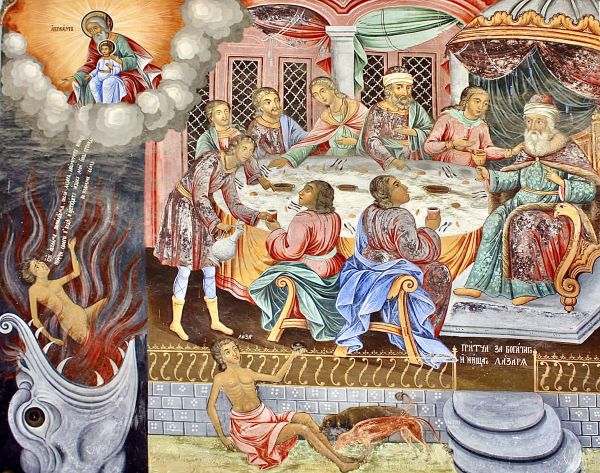The Gospel proposed by today's liturgy sets before us three important existential dimensions, which Francis held in high regard.
The parable of poor Lazarus and the immoderate rich man evokes the diligent use of riches, care for the needy, and is a call to conversion, since after death, individual judgement will be irreversible.
Francis, the Poor Man of Assisi, always had this Gospel picture before his eyes, which led him to better direct his heart towards God and the poor.
The Sources attest, from the very beginning of his journey:
"(Francis) had always benefited the needy, but from that moment on he firmly resolved never to refuse alms to the poor who asked for them for the love of God, and on the contrary to make spontaneous and generous donations.
To every poor man who asked for charity, when Francis was away from home, he provided with money; if he lacked it, he gave him his hat or belt, so as not to send him back empty-handed.
Or if he lacked these, he would withdraw to the sidelines, take off his shirt and secretly give it to the indigent, begging him to take it for the love of God.
He bought utensils that the churches needed and secretly gave them to poor priests' (FF 1403).
And again, the Legend of the Three Companions informs us:
"Divine Grace had profoundly changed him. Although he did not wear a religious habit, he longed to find himself unknown in some city, where he could barter his clothes for the rags of a beggar and try begging for the love of God himself' (FF 1405).
The Minim knew that what a poor man received was addressed to Christ himself and that a single glass of water given to the small and marginalised was offered to Jesus.
His encounter with the leper in the plain of Assisi had turned bitterness into true sweetness in him.
Francis feared divine judgement and wanted to respond to what the Word of God demanded of him.
Clare herself, from a young age, took food from her body to give to the poor, maintaining this attitude of special care and concern for the needy - all her life.
Both made an evangelical, intelligent use of the goods at their disposal in the service of the Kingdom of God.
«Son, remember that you received your goods in your life, and Lazarus likewise the evils; but now here he is comforted, you on the other hand are tormented» (Lk 16:25).
The Poor Man always exhorted his brothers to be merciful to all forms of indigence, because judgement does not grant full life to those who do not acknowledge it to their brothers.
Thursday 2nd wk. in Lent (Lk 16:19-31)












